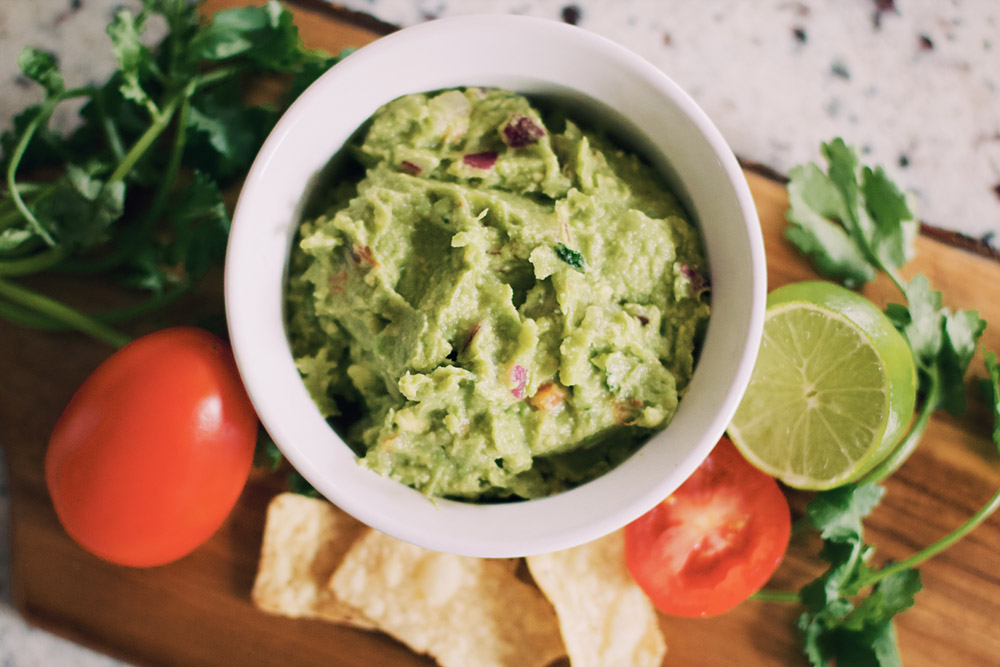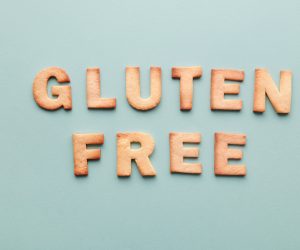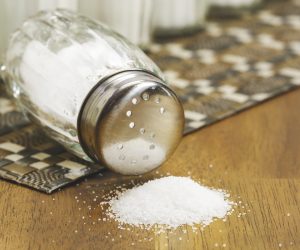
Anti-Inflammatory Effects of Guacamole
Michael Greger M.D. FACLM via Nutrition Facts – High-fat plant foods—avocados, peanuts, and walnuts—and olive oil are put to the test.
In the preface of my book How Not to Die, after bemoaning the fact that although Big Pharma offered me countless steak dinners during my medical training, Big Broccoli never asked me out, I wrote that you’ll probably never see an ad on TV for whole natural foods because there just isn’t much of a markup, they aren’t shelf-stable, and you can’t brand them, patent them, or trademark them. Real food just isn’t as profitable as junk. But, I may have to eat those words. As I discuss in my video Flashback Friday: The Effects of Avocados on Inflammation, there was a TV ad for avocados—aired during the Super Bowl, no less—and it wasn’t for avocado-flavored Doritos or something like that. It was an ad for the actual fruit. Thanks in part to the billions of avocados sold every year, the Avocado Board has $50 million—not only for ads but for research, too.
I’ve touched previously on its burger study, in which the addition of avocado blunted the spike in inflammation one gets within hours of eating meat. Amazing. The burger with more added fat and more calories from the avocado produced less inflammation, perhaps because the added fat and calories were in the form of a whole plant food, which tend to be packed with antioxidants that can inhibit the formation of oxidized fats that are formed when meat is cooked and when it hits your stomach acid.
Do other high-fat, high-calorie whole plant foods have the same protective effect? What about peanuts, for example. Not to be outdone by Big Guac, the Peanut Institute funded a study with the understanding that most of us spend most of our waking hours in a postprandial state—that is, an after-meal state—and the fat from those meals that courses through our systems is “a well-recognized risk factor for atherosclerosis,” the number one killer of men and women, manifesting as “impaired endothelial function.” That means we may have crippled artery function within hours of eating something crappy, like a milkshake, about 1,200 calories of mostly sugar and heavy cream. Well, what if you drank that same milkshake with 3 ounces of peanuts thrown in?
To mimic the nutritional profile of the added peanuts as closely as possible, the researchers tried to match up the added fat and protein by adding oil, egg whites, and even a fiber supplement to the control. So, as you can see at 2:07 in my video, the two milkshakes had pretty much the same amounts of calories, sugar, protein, fat, saturated fat, and fiber. So, on paper, it would seem the two shakes should cause the same reaction in the body, right? But peanuts are whole plant foods, so what you don’t see listed in a nutrient profile are the thousands of phytonutrients in the peanut milkshake that are missing from the non-peanut shake. Did the phytonutrients make any difference?
As you can see at 2:44 in my video, within hours of consuming the non-peanut milkshake, all that saturated fat and sugar in the shake clamped down artery function by about 20 percent. Just one milkshake reduced the ability of our arteries to relax and dilate normally by 20 percent! Okay, but what if you consumed the same amount of saturated fat and sugar but with a little real food thrown in? There was no significant drop in artery function! The peanuts helped preserve artery function in response to the endothelial insult, a “cardioprotective effect” presumably due to the active phytonutrients in the peanuts and peanut skins.
Walnuts may work even better. As you can see at 3:23 in my video, after you eat a salami and cheese sandwich with some olive oil, artery function plummets by about a third, but if you replace that olive oil with the same amount of plant fat in the form of whole walnuts, you don’t just blunt the effect of the salami and cheese—you reverse it. You end up even better than you started out.
What about avocados? “Research indicates that energy-dense [calorie-dense] foods increase inflammation and oxidative activity, thereby contributing to the development of vascular [artery] disease. However, it is not clear whether the high kilojoule [calorie] load alone, irrespective of the nutritional content of the ingested food, produces the postprandial [after-the-meal] oxidative and inflammatory activity.” So, researchers compared the impact of “a high-fat, high-sugar, phytonutrient-reduced food (ice cream)” to the effects of the exact same number of calories of a “phytonutrient-rich whole food (avocado).” If it’s just the concentration of calories and fat, the ice cream and avocados should have the same effect. The researchers tested reactions to four different meals: (1) ice cream, (2) avocado, (3) just the fat and protein from the ice cream (to separate out the sugar), and (4) just the amount of sugar in the ice cream (to separate out the effects of the saturated butterfat).
As you can see at 4:43 in my video, the four “food/food components” were ice cream, just the cream, just the sugar (without any fat), and about four avocados, which had, compared to ice cream, about three times the fat and the same amount of saturated fat and calories. What did the researchers find? If you eat the ice cream, just the cream (the sugar-free components), or just the sugar (the fat-free components), the level of oxidative stress in the bloodstream goes up. But, this was not observed after ingestion of a calorie-equivalent whole plant food.
“Unlike ice cream, ingestion of the whole-food avocado, which has the same energy density [calories] and a similar amount of fat, did not produce a rise in oxidative or inflammatory activity. This suggests that the postprandial [after-meal] oxidative stress observed after eating foods such as ice cream may be due to their isolation from non-energy-producing food components such as antioxidants.” Sugar is okay in fruit form because it naturally comes prepackaged with phytonutrients. Similarly, the fat in whole plant foods like nuts and avocados comes prepackaged with “a rich matrix of phytochemicals [and] therefore does not demonstrate the same potential for oxidative damage.”
Want to read more from How Not to Die? Please do! All proceeds I receive from my books are donated to charity.
KEY TAKEAWAYS
- Adding avocado to a burger blunts the spike in inflammation that normally occurs within hours of eating meat. Despite the avocado adding more fat and calories to the meal, less inflammation is produced, likely because the additions are from antioxidant-rich whole plant foods that can inhibit oxidized fat formation.
- Most of our waking hours may be in a postprandial (after-meal) state, and the fat we eat may be crippling our artery function soon after consumption.
- When two milkshakes with virtually the same amounts of calories, sugar, protein, fat, saturated fat, and fiber, but one included peanuts, a whole plant food containing thousands of phytonutrients, were given to subjects, within hours of drinking the non-peanut shake, artery function was diminished by 20 percent. With the addition of peanuts, though, there was no significant drop in the ability of the arteries to relax and dilate normally, and walnuts may work even better.
- In another study, researchers examined reactions to: (1) ice cream, (2) avocado, (3) just the fat and protein from the ice cream (to separate out the sugar), and (4) just the amount of sugar in the ice cream (to separate out the effects of the saturated butterfat). Oxidative stress levels in the bloodstream increased with the ice cream, just the fat and protein from the ice cream, and just the sugar in the ice cream, but no increase was observed after eating the avocados.
- Whole plant foods, which are rich in antioxidants, come naturally prepackaged with phytonutrients and do not show the same potential for oxidative damage.
To read the original article click here.






